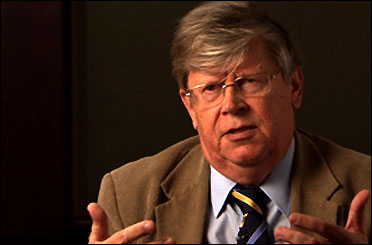Javad Heirannia of Mehr News International Service asked Olli Hainonen about the impacts of US presidential elections in November and possible shifts of policy especially on JCPOA, the nuclear deal Iran hit with the 5+1 in June 2015.
Heinonen believes it is too early to definitely say there will be changes in the JCPOA, since the deal is in early stages; he adds that Iran’s future performance in the region (including its role in the Middle East crises) would largely be responsible to changes in the White House future decisions about the country including its nuclear deal:
What will be the impact of US presidential election on the implementation of JCPOA (Joint Comprehensive Plan of Action)?
Ms. Hillary Clinton, the expected Democratic presidential nominee, has expressed her support for the agreement with tough implementation. The presumptive Republican nominee, Donald J. Trump, has suggested he would renounce it in favor of a better deal. The JCPOA is still in its early stages, and its true tests of sustainability lie ahead. There may be events before the November US Presidential election that could impact on the debate – both in Iran and in the US – and consequently shape the JCPOA’s execution going forward.
Expectations of speedy economic recovery are high in Iran post-JCPOA, but this is not happening as expected due to a variety of reasons, including internal ones. Larger foreign industrial banks moreover remain cautious in returning to usual business with Iran. This has caused accusations from the Iranian side. There has already been in Tehran thinking that Iran should consider reverting from some of its JCPOA commitments, for example, installing additional centrifuges. If this takes place, many policy makers in the US and Europe – regardless of their parties – will view this as a negative déjà vu. Such an action, in addition to Iran’s continuing role in Syria, Iraq, and Yemen, will cause additional stress to relations and possibly push the Obama administration to take a harder line on the JCPOA in support of Secretary Clinton.
We should also not discount the foreseen presidential election in Iran, albeit with official campaigning not expected to start before summer 2016. Mr. Rouhani can be expected to be challenged including on the JCPOA, which may consequently also impact on its implementation.
Do you think there is any difference between Republican or Democrat final elected president in implementation of JCPOA?
The fact that the JCPOA is adopted as a UN Security Council Resolution 2231 in reality means that both candidates should continue its implementation after the election. The tradition for the incoming president is to review all major policies during her/his first 100 days in office. This will certainly include a thorough look at the implementation of the JCPOA, and in the larger context, also a review of nuclear non-proliferation strategies. The experiences on the implementation of the JCPOA on ground thus far would therefore be important. At the same time, the President and her/his foreign policy team will also consider the nuclear aspirations of Iran, as well as its foreseen nuclear status at Transition Day, the 10, and also 15-year marks. Those assessments, together with Iran’s actions in the Middle East, alleged support for terrorism, and US’ position on human rights issues in Iran, will contour the actions and course of the new administration. We should remember as well that while Republicans and Democrats have differing strategies and approaches, both parties share an emphasis on nuclear non-proliferation.
Olli Heinonen is a Senior Fellow at Harvard University's Belfer Center for Science and International Affairs. He is also an Advisor on Science and Nonproliferation to Foundation for Defense Democracies, in Washington DC.
Interview by: Javad Heirannia

























Your Comment